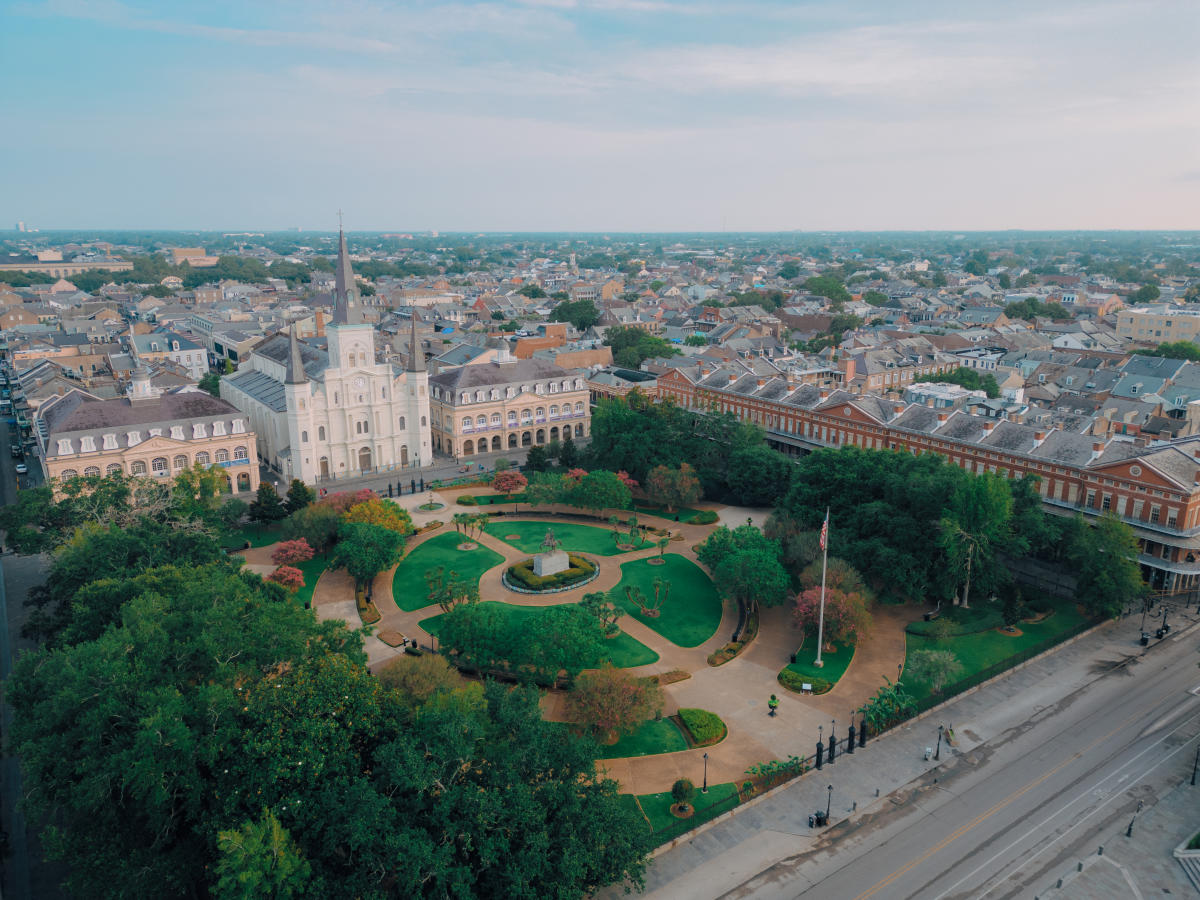Hi Mac,
New Orleans: Two battles. 1815 - at nearby Chalmette General Andrew Jackson beat the British under General Edward Pakingham in the last battle of the War of 1812, with some assistance by Jean Lafitte and his pirate/smuggler's band. 1862 - Admiral David Farragut won the battle of New Orleans (naval battle) against Confederate forces. This led to the city falling into Union hands. Subsequently the Union put General Benjamin Butler in charge of the city. There were many unsavory stories about Butler being corrupt (possibly true), the two most notorious ones being his possibly being so greedy for money and silver that he stole cutlery from the locals (hence his nickname, "Spoons" Butler) and his actual order (after provocation from the local New Orleans ladies snearing or spitting at Union
troops) that the women doing this would be treated like prostitutes by the Union provost marshals. Southerners hated Butler long before they hated General Sherman.
Franklin, Tenn. - a near Confederate victory in November 1864, but misunderstandings of orders led to Union troops under John Schofield digging in with their backs to the river. Confederate General John Bell Hood ordered savage frontal assaults, and eleven generals were killed (more generals than in any other Civil War battle. The saddest loss was the excellent general Pat Cleburne, an ex-Irish rebel, who had the temerity to suggest that the Confederacy would win foreign support if it freed the slaves. That idea did not sit well in Richmond.
Nashville, Tenn. - Besides Andy Jackson's "The Hermitage", and the "Grand Ole Opry", try to see any remains of the December 1864 battle of Nashville, where the remains of Hood's army was smashed to bits by General George Henry Thomas. Hood's army literatlly ceased to exist after that battle.
Jeff
New Orleans: Two battles. 1815 - at nearby Chalmette General Andrew Jackson beat the British under General Edward Pakingham in the last battle of the War of 1812, with some assistance by Jean Lafitte and his pirate/smuggler's band. 1862 - Admiral David Farragut won the battle of New Orleans (naval battle) against Confederate forces. This led to the city falling into Union hands. Subsequently the Union put General Benjamin Butler in charge of the city. There were many unsavory stories about Butler being corrupt (possibly true), the two most notorious ones being his possibly being so greedy for money and silver that he stole cutlery from the locals (hence his nickname, "Spoons" Butler) and his actual order (after provocation from the local New Orleans ladies snearing or spitting at Union
troops) that the women doing this would be treated like prostitutes by the Union provost marshals. Southerners hated Butler long before they hated General Sherman.
Franklin, Tenn. - a near Confederate victory in November 1864, but misunderstandings of orders led to Union troops under John Schofield digging in with their backs to the river. Confederate General John Bell Hood ordered savage frontal assaults, and eleven generals were killed (more generals than in any other Civil War battle. The saddest loss was the excellent general Pat Cleburne, an ex-Irish rebel, who had the temerity to suggest that the Confederacy would win foreign support if it freed the slaves. That idea did not sit well in Richmond.
Nashville, Tenn. - Besides Andy Jackson's "The Hermitage", and the "Grand Ole Opry", try to see any remains of the December 1864 battle of Nashville, where the remains of Hood's army was smashed to bits by General George Henry Thomas. Hood's army literatlly ceased to exist after that battle.
Jeff


 Would love to hear afterward, with pics of course
Would love to hear afterward, with pics of course


Comment